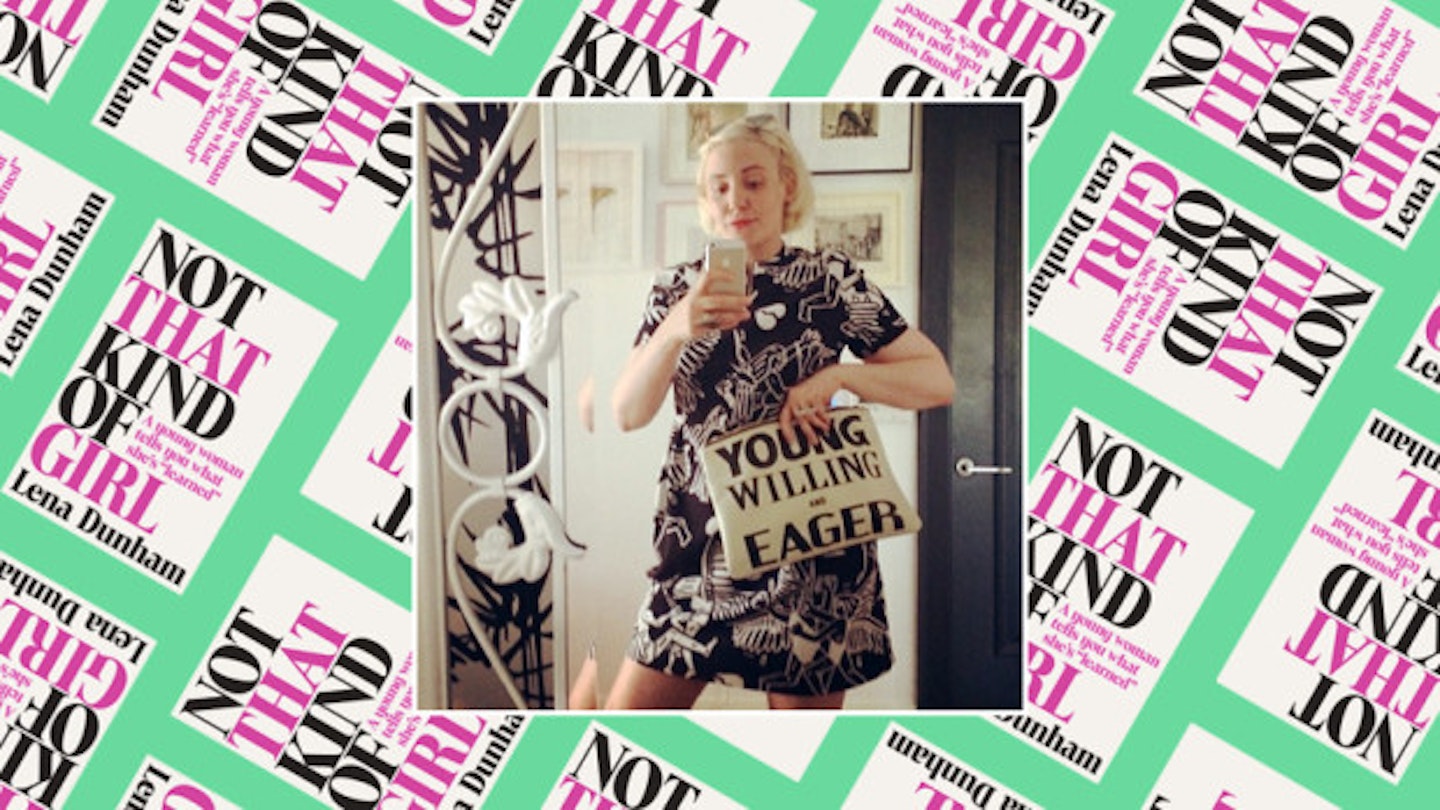Like the rest of the world, we're huge fangirls of Lena Dunham and her candid approach to figuring it all out. Her first book, an honest memoir, hit the shelves last week and sent the whole of the world hashtagging #NotThatKindofGirl, like an army of new-gen feminist fighters.
In the book, Lena takes us down a rabbit-hole of flashbacks and memories from her really early years, through the awkward teens, to current moments in her life. Reading this book is your invitation to be a fly-on-the-wall in these personal moments behind the cameras, as you realise actually how much pressure she was under during the filming of *Girls *on HBO, what it's really like to get naked on screen, and actually how much growing up in New York liberal arts community might have been fun but came with it's own complications. Just like real life then.
READ MORE: Caitlin Moran On How To Deal With Life When You're Still Figuring Shit Out
Here are a few life lessons we learnt from Lena's book:
It’s** OK... to meet your best friends later on in life**
For any millennial who goes through their teens making shitloads of friends, they’ll also be familiar with the period of life in your early twenties where people change, you change, and the result is losing (or culling) 50% of those friends. In Lena’s opening chapter she addresses the idea of having ‘my people,’ girls who were ‘from elsewhere, going elsewhere and that they would recognise me when they saw me’, i.e. not the type of vanilla friends who enjoy flower-pressing on weekends.
It’s OK…. to be led astray by the rebellious friend who your parents hated
Lena’s rebel mate was Juliana, the new girl in ninth grade (so like, 15 years old). She had spiked hair, a nose ring, had already had sex with a 20-something year old guy in an alleyway and introduces Lena to the concept of a fake ID. It's OK to have done some regrettable things because a 'cooler' girl at school told you to do things like smoke weed, cut your hair, wear goth black lipstick, lie to your poor unsuspecting parents – we've all been there.
It’s OK… to find it difficult when talking about rape
Now for the serious part. Lena recalls an evening with a drunk guy and the blurred lines that came along with it. It was drunken and hazy. As a reader it's clear that she's confused at the fact that she does not consent to sex but as the guy in question is a ‘friend of a friend’ she somehow blames herself. This chapter is so important. Having to deal with the fact that she has been raped even though in her mind she disguises it as just a drunken thing at first is tough. There is also very emotional dialogue between her and her now current boyfriend Jack as they deal with it together. She reminds us that it's OK to talk about it.
It’s OK… to let your period pains consume you once a month
Lots of girls feel embarrassed or ‘weak’ if you admit defeat when it’s that horrendous time of the month. But like Lena says, if you feel like you've been 'shot in the crotch' you eat as much chocolate as you damn well please. Count this as your get-out-of-jail-free card to wallow in menstrual pity each month. Thank you Lena.
It’s OK… to be pretentious every now and again** **
This is probably the only part of the book that is a bit ‘la de dah’ (cue Camilla Long taking a sly dig in her Sunday Times column) is when Lena organizes a vegan dinner party. But come on, weren't you a bit pretentious during your teens? When Lena was 17, she hosted a vegan dinner party that was featured in the style section of *The New York Times. '*I wore my grandmother’s Dior, insisted on shoelessness,' she writes. OK it’s not the most normal behavior for a 17-year-old, but if we think back to the shitholes we were hanging out in when we were 17, we think we know which one we'd rather choose.
**It's OK.. to have a crush on a girl, but maybe avoid calling it a 'girl crush' **
There's a brilliant chapter in which Lena talks the reader through her school days of having 'lesbian' thoughts, or just admiring her female peers. She believes that saying the term 'girl crush' is kind of 'homophobic' as it suggests you're trying to say 'hey I'm not a lesbian I just fancy a girl!' and her response is basically 'who cares.' So next time you are pining after Jennifer Lawrence just say 'I have a crush on her' and own it loud and proud.
Like this? Then you might also be interested in:
Highly Important Life Lessons We've Learnt From Caitlin Moran
Five Books Every 20-Something Should Read Immediately If They Haven't Already
Follow Emma Gannon at @girllostincity
This article originally appeared on The Debrief.
